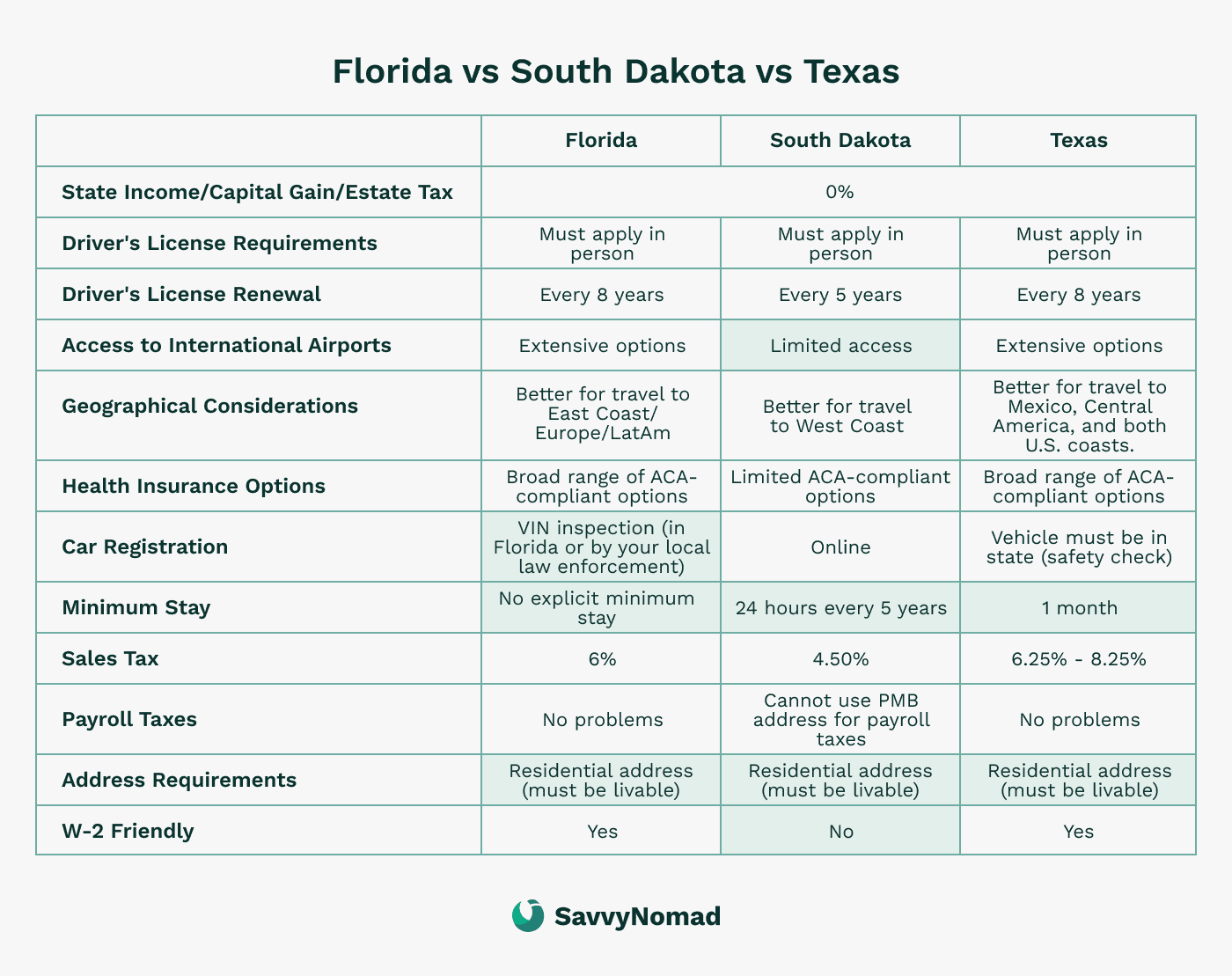Do expats from Oklahoma still need to pay state taxes?

When you move abroad, understanding state taxes is important. Living in another country, you might still owe taxes to your home state.
State taxes matter because some states may consider you a resident for tax purposes, meaning you must pay taxes on your worldwide income.
Knowing the rules about residency (where you live) and domicile (your permanent home) helps you manage your tax responsibilities and avoid unexpected bills.
TLDR:
If Oklahoma remains your domicile and you haven’t established residency in a different state, you are considered an Oklahoma resident for tax purposes and must file state taxes on your worldwide income.
Oklahoma calculates state taxes based on your federal adjusted gross income (AGI), so any foreign income excluded on your federal return will also be excluded from your Oklahoma return.
The Foreign Earned Income Exclusion (FEIE) allows U.S. taxpayers living abroad to exclude up to $126,500 of foreign-earned income from their U.S. taxable income for the 2024 tax year.
This exclusion only applies to earned income, such as wages and salaries, and does not apply to passive income like interest, dividends, capital gains, and rental income.
To avoid state taxes, you must sever all ties with Oklahoma and establish a new domicile in another state.
Understanding Oklahoma's tax residency rules
Residency and domicile are critical in determining Oklahoma tax obligations. Residency refers to where you live, while domicile is your permanent home where you intend to return after any absence.
Definition of residency and domicile
Residency: Residency is where you live, either temporarily or permanently. It is based on physical presence in a particular place.
Domicile: Domicile is your permanent home, the place you intend to return to and stay indefinitely. You can only have one domicile at a time, but you can have multiple residences.
You can be a resident of several places, but you can only have one domicile. Domicile requires intent to remain permanently.
Resident
Domicile and Tax Status: If Oklahoma is your domicile, you are considered a resident for tax purposes. You must pay Oklahoma state taxes on your worldwide income, including foreign-earned income.
AGI and State Taxes: Oklahoma calculates state taxes based on your federal adjusted gross income (AGI). Any foreign income excluded on your federal return is also excluded from your Oklahoma return.
FEIE Benefits and Limitations: The Foreign Earned Income Exclusion (FEIE) allows you to exclude up to $126,500 of foreign-earned income from your U.S. taxable income for the 2024 tax year. This exclusion applies only to earned income like wages and salaries, not to passive income such as interest, dividends, capital gains, or rental income.
Nonresident
Nonresidents do not have Oklahoma as their domicile and do not maintain significant ties to the state. They are only taxed on income originating from Oklahoma sources, such as wages earned in Oklahoma or income from property located in the state.
Part-Year Resident
Part-year residents live in Oklahoma for part of the year and another state for the rest. They are taxed on all income earned while residing in Oklahoma and only on Oklahoma-sourced income during the non-resident part of the year
What constitutes Oklahoma-sourced income?
Understanding what constitutes Oklahoma-sourced income is essential for nonresidents and part-year residents to accurately determine your tax obligations.
Oklahoma-sourced income refers to any income derived from activities or assets located within the state.
Here are some key categories to consider:
- Wages and Salaries: Money earned for services performed in Oklahoma.
- Business Income: Income from business activities conducted in Oklahoma.
- Real Estate: Rental income from property located in Oklahoma.
- Capital Gains: Profits from the sale of real estate or tangible property in Oklahoma.
- Dividends and Interest: Dividends from Oklahoma-based companies and interest earned from Oklahoma financial institutions.
- Pensions and Retirement Plans: Retirement income from Oklahoma institutions or for services performed in the state.
Why should you move domicile to a state with zero state income tax?
State income tax savings
Retirees and high-income earners can greatly benefit from moving to states without state income taxes, such as Florida, Texas, and Nevada.
This move can result in substantial tax savings, especially for those with high annual incomes, who would otherwise face steep state tax bills in Oklahoma.
When income exceeds the Foreign Earned Income Exclusion (FEIE) limit of $126,500 in 2024, moving to a state with no income tax can be especially beneficial since it shields more of their income from state taxes.
Inheritance tax benefits
States like Florida, Texas, and Nevada not only have no state income tax but also have favorable estate tax laws. This can provide significant advantages for high-net-worth individuals looking to minimize their tax liabilities upon death.
Many states with no state income tax also do not impose a state estate tax, which helps preserve more wealth for heirs and reduces the overall tax burden on the estate.
Flexibility and mobility
Moving domicile to a no-income-tax state enhances flexibility and mobility, allowing individuals to travel or live in multiple locations without worrying about high state tax bills. This is ideal for high-income earners who may have business interests in different states or countries and for retirees who wish to spend their golden years exploring new places.
Moreover, the absence of state income taxes simplifies your tax filing process. You will only need to file federal taxes, reducing the complexity and potential for errors in your tax returns, making financial management more straightforward.

How to leave Oklahoma tax residency?
Here are the key steps to help you transition:
1) Establish new residency
- Secure a Residential Address: Obtain a residential address in your new state. This is the most critical step in establishing a new domicile. Consider using a domicile service that provides a residential address, assists with mail forwarding, and helps establish your new residency.
- File a Declaration of Domicile if required: Some states, like Florida, require a formal declaration to confirm your new domicile. Check the requirements of your new state and file the necessary documents to establish your intent to remain there permanently
Reference guides may provide additional help for specific states:

2) Sever ties with Oklahoma
- Sell property: If you own property in Oklahoma, consider selling it or renting it out. This indicates that you no longer have a significant connection to the state.
- Transfer IDs and registrations: Update your driver’s license and vehicle registration to your new state. This demonstrates your commitment to your new domicile.
- Register to vote: Register to vote in your new state. Voting registration is a strong indicator of your intent to establish residency.
- Update personal documents: Change your address on all identification cards, medical records, insurance policies, financial documents, and other important records.
3) Notify relevant parties
- Inform your employer: Notify your employer about your change of residency. This can affect how your income is taxed and helps establish your new domicile.
- Notify the IRS: Inform the IRS of your address change using Form 8822. Extend this notification to all personal and professional entities.
- Update all personal and professional entities: Inform banks, investment accounts, insurance companies, and other relevant entities about your change of address.
4) Keep detailed records
- Maintain documentation: Keep receipts, bills, lease agreements, and other legal documents that prove your new residency. Detailed records are essential if your residency status is questioned.
- Track your movements: Document your time spent in and out of Oklahoma. This includes travel records, utility bills, and any other documents that show your physical presence in your new state.
5) Be prepared for audit
- Proof of permanent move: Be ready to provide comprehensive proof that you have permanently moved out of Oklahoma, including all documentation showing that you have established a new domicile and severed ties with Oklahoma.
- Respond to inquiries: If the Oklahoma Department of Taxation questions your residency status, provide thorough responses and all necessary documentation promptly to avoid potential penalties.

Tax benefits and exemptions for expats from Oklahoma
Living abroad as an expat from Oklahoma comes with various federal tax credits that can help reduce your overall tax burden.
Here are some of the key tax advantages available:
Foreign Earned Income Exclusion (FEIE)
The FEIE allows you to exclude a significant portion of your foreign-earned income from U.S. federal income tax.
For the tax year 2024, you can exclude up to $126,500 of foreign-earned income from your U.S. federal and Oklahoma state taxable income.
To qualify, you must pass either:
- Bona Fide Residency Test: You qualify if you are a resident of a foreign country for an uninterrupted period that includes an entire tax year.
- Physical Presence Test: You qualify if you are physically present in a foreign country for at least 330 full days during a 12-month period.
Foreign Tax Credit (FTC)
The FTC helps you avoid double taxation by allowing you to take a credit for foreign taxes paid on income that is also subject to U.S. federal and Oklahoma state tax.
This is especially beneficial if you live in a high-tax country, as it can significantly reduce your federal and state tax liability.
Foreign Housing Exclusion (FHE)
The FHE allows you to exclude certain housing expenses from your federal and state taxable income, including rent, utilities (excluding telephone), and other reasonable expenses related to housing abroad.
The amount you can exclude is limited to a base amount plus housing expenses exceeding 16% of the FEIE limit.

Filing Oklahoma state taxes from abroad
When filing Oklahoma state taxes from abroad, it's essential to determine your residency status and use the appropriate forms:
- Form 511: For full-year residents of Oklahoma. This form is used to report all income, regardless of where it was earned.
- Form 511NR: For nonresidents or those who lived in Oklahoma for only part of the year. This form is used to report income earned in Oklahoma and during the period of residency.
Deadlines
- Standard Deadline: April 15. The deadline for filing Oklahoma state taxes aligns with the federal tax deadline. This is the due date for both filing your return and paying any taxes owed.
- Automatic Extension for Expats: June 15. If you are living outside the U.S. on April 15, you may receive an automatic two-month extension to file your return and pay any amount due without requesting an extension, extending the deadline to June 15. However, interest on any unpaid taxes will accrue from the original April 15 deadline.
- Additional Extension: October 15. You can request a further extension by filing Form 502E, Application for Extension of Time to File Personal Income Tax Return, typically extending the deadline to October 15. This extension is for filing your return only, not for paying any taxes owed. Interest on any unpaid taxes will continue to accrue from the original April 15 deadline.
- Payment Deadlines. Regardless of filing extensions, any taxes owed must be paid by April 15 to avoid interest and late payment penalties. If you file an extension, ensure that your payment is postmarked by the due date to avoid additional charges.
Consequences of non-compliance with Oklahoma state tax laws
- Late Filing Penalty: 5% of the unpaid tax per month, up to a maximum of 25%.If your return is more than 60 days late, the minimum penalty is either $135 or 100% of the unpaid tax, whichever is less.
- Late Payment Penalty: 0.5% of the unpaid tax per month, up to a maximum of 25%.
- Interest Charges: In addition to penalties, interest is charged on any unpaid taxes from the original due date until the taxes are paid in full. The interest rate is 1.25% per month on both personal and business taxes. This interest continues to accrue until the balance is fully paid.
Audits and assessments
Oklahoma may conduct residency audits to verify your residency status and ensure proper tax compliance. During an audit, you must provide extensive documentation, such as proof of domicile and detailed financial records. Failure to provide adequate documentation can result in additional tax assessments and penalties.






